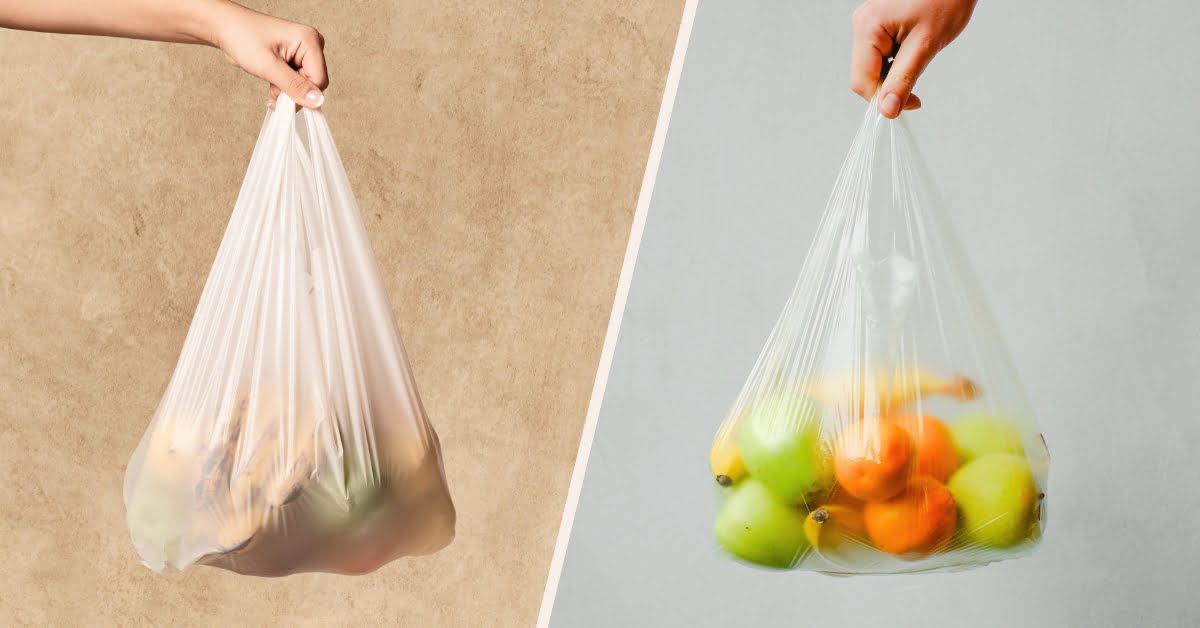
Published
August 31, 2023
Given the health concerns surrounding the use of cassava bags vs plastic for food packaging, it is important to compare.
The consumer behavior landscape in Southeast Asia, especially in the Philippines, has undergone a significant shift since the pandemic. This is especially significant in cassava bags vs plastic for food packaging. According to the Grab Food and Grocery Trends report from December 2022. What started as a response to pandemic lockdowns has evolved into a lasting trend: the reliance on food and grocery deliveries even in a post-pandemic world. In addition, seven out of 10 Filipinos now consider deliveries a normal part of their daily routines.
The report revealed increased spending on deliveries among Filipinos. Furthermore, an 84-percent surge in average order value from 2019 to 2022 can be linked to the convenience and quick access that deliveries offer. Secondly, eight out of 10 merchants now rely on delivery platforms to keep their businesses going.
However, the rise in takeout orders has brought about a surge in plastic food packaging. The Unwrapped Project highlights health risks associated with these containers, revealing that around 12,000 chemicals used in plastic packaging may get into our food. Additionally, experts validate these fears with over 1,200 peer-reviewed studies.
Given the health concerns surrounding the use of plastics for food packaging, it is important to explore alternative packaging to plastic, such as cassava bags and other plant-based packaging. However, we have to ask ourselves if these alternatives can replace plastic packaging completely.
Cassava bags vs. plastic for food packaging: Is the sustainable choice always better?
While it seems like an easy choice to make, let’s take a closer look at the good and not-so-good things about cassava bags vs. plastic bags for food packaging.

Cassava Bags
Pros
- Biodegradability. Cassava bags are made from natural materials and are biodegradable packaging for businesses, which means they break down naturally over time.
- Renewable Resources. Cassava is a crop that can be grown sustainably and replenished over relatively short periods of time.
- Compostable. Cassava bags are compostable, which means they can be added to compost piles and contribute to soil enrichment.
- Reduced Plastic Pollution. Cassava bags help minimize the use of conventional plastics, contributing to less plastic pollution.
Con
- Limited Availability. The production of cassava bags may be limited due to the availability of cassava crops and processing facilities.
- Production Challenges. The manufacturing process of cassava bags could involve more complex procedures than regular plastics.
- Market Acceptance. Some consumers might be unfamiliar with cassava bags, leading to skepticism about the product.
- Cost. Initial costs for switching to cassava bags may be higher due to research, development, and changes in supply chains.

Plastics
Pros
- Durability. Plastic packaging is often more durable, providing protection to food during transportation and reducing the risk of damage.
- Cost-effective. Plastic production processes are well-established and require lower expenses for manufacturers.
- Familiarity. Plastic packaging is familiar to consumers and is widely used and trusted.
- Variety. Plastics offer a wide range of options in terms of sizes and shapes, allowing for customization.
Cons
- Limited sustainability. Traditional plastics are made from non-renewable fossil fuels, and recycling rates for plastics are low.
- Regulatory Scrutiny: Governments and organizations are now advocating for restrictions on single-use plastics due to their negative impacts.
- Environmental impact. Plastics contribute significantly to pollution, including littering, marine wastes, and non-biodegradable wastes.
- Long decomposition period. Plastic takes hundreds of years to decompose, leading to long-lasting harm if not managed properly.
Done weighing both cassava bags vs. plastic? Time to lock in your food packaging of choice
There’s no question that cassava bags have a lot more advantages over harmful plastics, but we understand the hesitation surrounding their use. This is how Oikos Sustainable Solutions can help budding eco-friendly businesses.
In addition, we are the first manufacturer of plant-based bags in the Philippines, and the first and only local brand to receive an Environmental Technology Verification for our biodegradable packaging for businesses. Our products made of corn starch and cassava are durable, adaptable, and can effectively replace plastic bags without any problem.

When sustainable businesses in the Philippines work with a direct manufacturer like us, you’ll no longer have to worry about limited availability and production concerns. Finally, by partnering with Oikos, you can help us introduce cassava bags and corn starch bags as sustainable and ideal alternative packaging to plastics. Help us change the norm of food packaging in the Philippines. Check out our products today!
Facebook
Linkedin
Twitter
Pinterest
